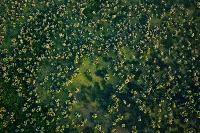4,500 ha of Danube forests saved from clear-cutting in Bulgaria

4,500 ha of Danube forests, some of which protected by the European network of protected areas Natura 2000, will be preserved after the timely intervention of WWF and partnering environmental organisations.
The threat to riverine forests came in October 2012 after a controversial legal amendment was introduced by the Bulgarian Ministry of Regional Development. The amendment has now been abolished, WWF has confirmed.
The amendment stipulated that the servitude of the Danube River dikes would be extended from the fixed 10 m to include the entire area between the river and the dikes.
“This ‘minor’ alternation doomed all riverine forests along the Danube”, said Ivan Hristov, Head of Freshwater at WWF Bulgaria. “These forests could have been legitimately cut down”.
On the same day, the Ministry of Agriculture, also responsible for forests in Bulgaria, transferred the management of the riverine areas from the state forestry companies to the state-owned company Irrigation Systems, notorious for its poor management and corrupt practices.
“The intention behind these two coordinated moves was probably to provide funds for the struggling Irrigation Systems company. By cutting down and selling the wood, they could cover some of their debts”, Hristov said.
The benefits of riverine forests are rarely talked about, but environmental experts agreed that they are hugely important as hotspots of biodiversity. In addition, they have a sizable economic impact. If properly managed, they act like a barrier against floods, landslides, and various natural disasters.
“Removing these barriers would increase erosion and even compromise levees”, Hristov said. "In recent years vast areas of riverine forests in the interior of the country were destroyed through questionable or bad practices. Instead of limiting flooding, we saw the opposite. The clearing of riverine forests destabilized banks and caused much damage. As a result, we had at least two major occasions of collapsed roads”.
Also situated by the Danube are many of Bulgaria’s poplar farms. They provide stable income for local people, an alternative to logging. They are also among the very few employers in the unemployment-stricken northwestern region of Bulgaria and along the rest of the Danube.





